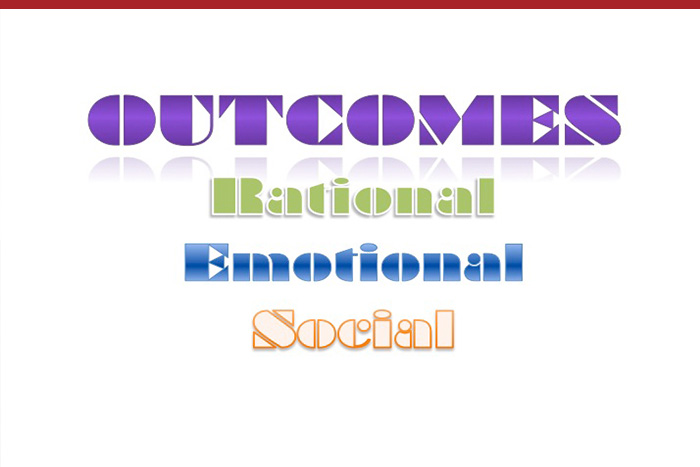In framing work with an individual, team or meeting it is always critical to know your outcomes first. This is especially important if you are engaged in repetitive social activity with a purpose in which the sheer repetition can, at times, cause you to lose sight of fundamental purpose. Realizing that the majority of work we do in organizations is with, and through, people it is important to recognize that there are three broad types of outcomes: rational, emotional and social.
Rational outcomes are the ones we are most familiar with. They relate to the actual content of the work and the tasks associated with work. They can generally be measured, tracked over time and check off of “to do lists”. Things like plans, projects, specific measurable objectives all fall into the area of rational outcomes.
Of more lasting importance are often the social outcomes. These outcomes relate to the types and quality of relationships that need to be fostered in the group as a result of the work you do. Examples of social outcomes are creating connections between people; providing the experiences of commonality or universality in groups of people working together.
Emotional outcomes cover the types of experiences you want individuals to have as they are engaged in the rational work. Examples of emotional outcomes are improved communication; building of trust; a sense of being part of a winning team; building understanding; or building commitment.
Both social and emotional outcomes are far more intangible, less able to be measured directly, and difficult to check off ‘to do lists’. And yet, they are often the most critical outcomes in terms of creating long-term success for individuals, groups and organizations.
Moreover there is a hierarchy of importance to the three types of outcomes. Unless the social fabric of a group is functional, the individuals cannot feel safe to allow themselves to be fully present.
Hence social outcomes are more basic than emotional outcomes. But until one feels free to commit or not, to experience clearly, then one is not totally free to commit to task: so, emotional outcomes are more basic than rational outcome. This difference is represented in the diagram below.
Three types of outcomes
Well formed outcomes
In addition to knowing your desired outcomes it is also important that they be well-formed. To be well formed, outcomes must meet the following conditions:
- Is the outcome possible: i.e. can it be initiated and sustained by you or
the group of people taking on the outcome? - Is it stated in the positive vs. what you don’t want, rather than what do you not want?
- Is it specific…what will I see/hear/feel when I achieve it?
- Is it worth doing?
- Is it ours to do, or is it someone else’s rightly to achieve?
- Is it ecological, i.e. is it not so alien as to be rejected by the system?
Jill Tideman









